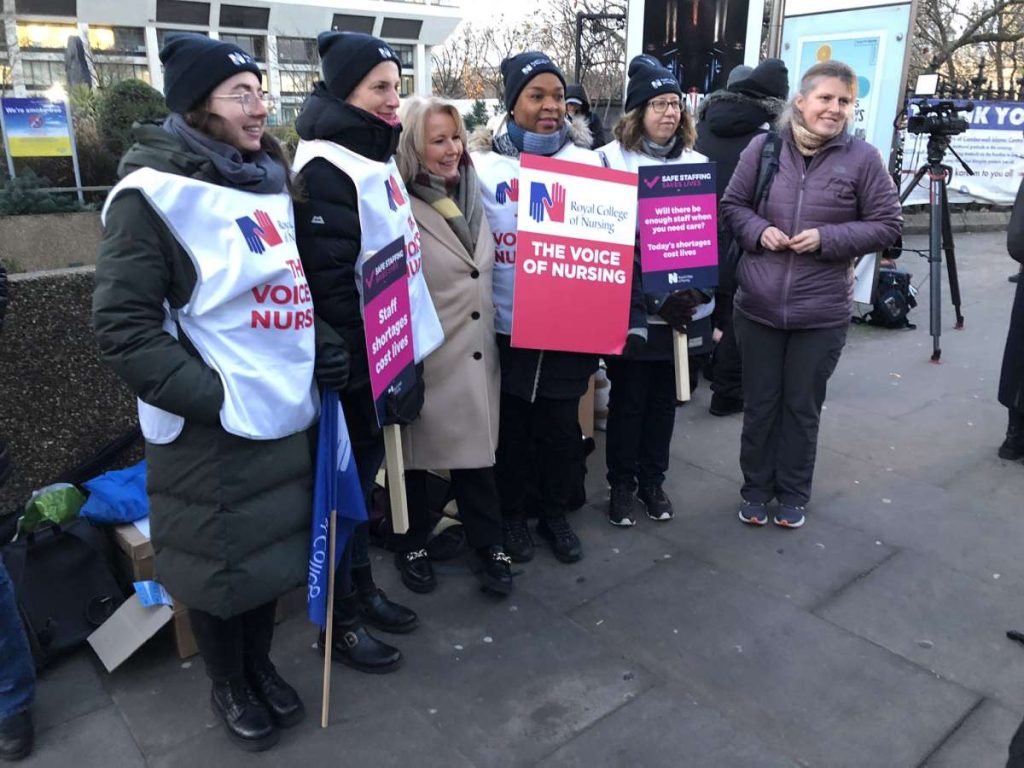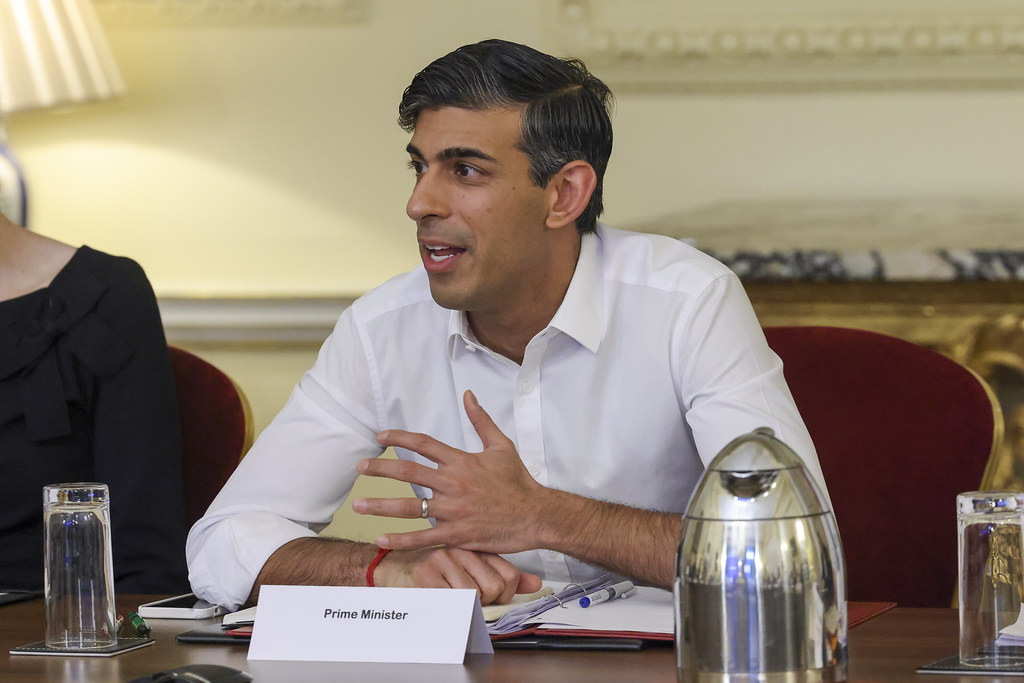After years of underfinancing, the NHS state-funded health service is struggling to meet the demand for emergency medical care during a particularly difficult winter with high rates of coronavirus and flu…reports Asian Lite News
Prime Minister Rishi Sunak on Saturday called for “bold and radical” action to reform the crisis-hit state healthcare system as he held emergency talks with health leaders.
After years of underfinancing, the NHS state-funded health service is struggling to meet the demand for emergency medical care during a particularly difficult winter with high rates of coronavirus and flu.
Hospital and ambulance staff have launched rare strike action — in the case of the nurses, for the first time in 100 years — with many members of the public sympathetic to their cause.
Nurses are calling for a salary hike to reflect inflation soaring above 10 percent.
After being accused of inaction, Sunak was hosting England’s chief medical officer Chris Witty, and NHS England chief executive Amanda Pritchard at Downing Street on Saturday.
The meeting came ahead of talks planned between government officials and union leaders on Monday, aimed at ending the strikes.
“During the pandemic we had to bring boldness and radicalism to how we did things in order to get through,” the prime minister was quoted as saying by Downing Street.
“I think we need that same bold and radical approach now.”
He added: “Together today, we can figure out the things that will make the biggest difference to the country and everyone’s family, in the short and medium term.”
In a speech this week, Sunak set out five priorities for 2023 including shortening NHS waiting lists.
The general secretary of the Royal College of Nursing union, Pat Cullen, told BBC radio that she would attend the Monday talks with the health minister Steve Barclay.
At the same time she said that Sunak should negotiate with nurses directly to prevent planned further strike action on January 18 and 19.
“He needs to come to the negotiation table with me and he needs to put money on that table, and it needs to be about the current year,” she told the BBC.
Some of the best health and care minds in the country will use the session to share best practice and to understand whether any innovations developed at a local level could be applied to other regional areas or on a national basis.
As the Prime Minister set out in his speech earlier this week, innovation is at the heart of the government’s approach and will be a vital aspect of the solution, and so Forum attendees will include representatives from both the public and independent sector to ensure we’re harnessing a wide spread of expertise and talent.

The Forum is the next step in the significant action that the government has taken to improve outcomes and relieve the immediate pressures on the NHS and in social care caused by the pandemic, with further pressures due to the recent rise in covid and flu cases.
On improving capacity in the NHS, the government has provided an extra £500 million to speed up hospital discharge this winter and we’re also increasing bed capacity by the equivalent of 7,000 more beds.
The NHS is rolling out virtual wards across England, with an ambition to establish 40-50 virtual ward beds per 100k population, by December 2023. Virtual wards are where people, for example, who have acute respiratory infections can actually be treated at home with telemedicine or pulse oximeters and there is also a new fall service which can save about 55,000 ambulance call outs a year by treating people with falls at home.
In total, the government will invest up to £14.1 billion additional funding over the next two years to improve urgent and emergency care and tackle the backlog – the highest spend on health and care in any government’s history. £7.5 billion of this support is for adult social care and discharge over the next two years, which will also help deal with immediate pressures.
91 Community Diagnostic Centres have been opened so far and they have delivered over 2.7 million tests, checks and scans to help diagnose patients earlier.
The government is also continuing to grow the NHS workforce, with around 42,000 more staff than a year ago, including over 10,500 more nurses and almost 4,700 more doctors.
The government is investing at least £1.5 billion to create an extra 50 million general practice appointments by 2024, while the NHS is accelerating the rollout of new state-of-the-art telephone systems to make it easier for patients get through to their GP surgeries.
Earlier in the week, the Prime Minister set out one of his key promises that NHS waiting lists will fall and people will get the care they need more quickly. He also pledged to make sure the NHS is built around patients.
The Forum will run for the majority of Saturday and attendees will include chief executives and clinical leaders from NHS organisations, local areas and councils from across the country, clinical experts from Royal Colleges and independent sector organisations working with health and social care services to deliver services for patients.
The Health and Social Care Secretary, the Chief Secretary to the Treasury, the Chancellor of the Duchy of Lancaster and Chief Executive Officer (CEO) of NHS England will attend the Forum.

Leave a Reply